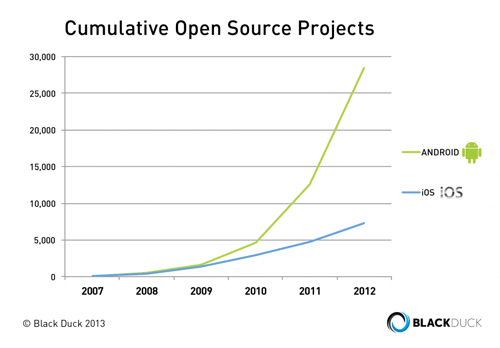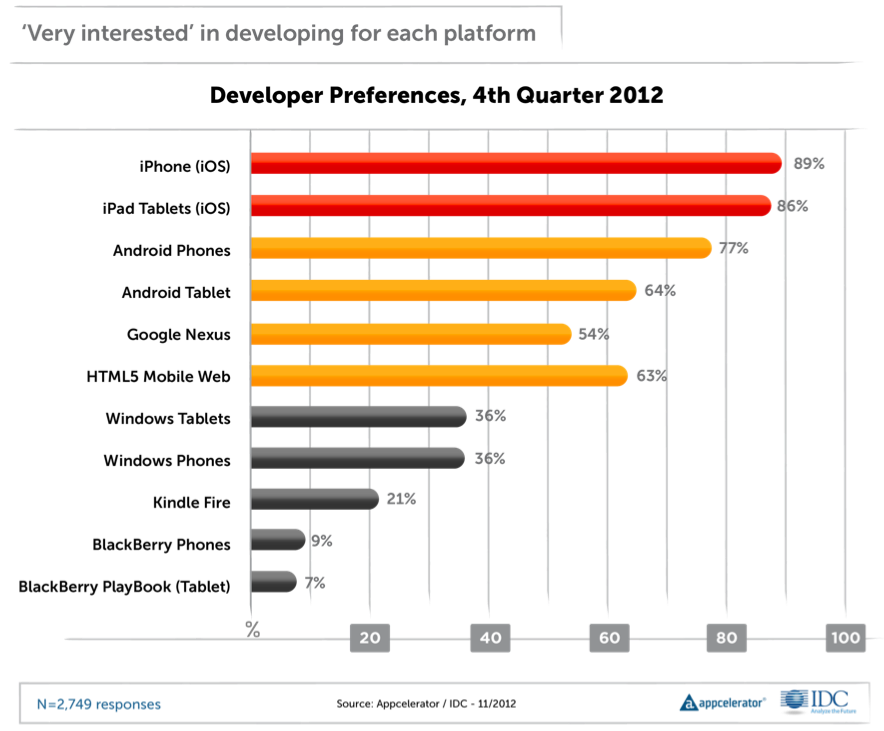
Despite Google Android’s long market-share rise against Apple iOS, developers continued to stick with iOS as their first deployment target. While Android offered superior volume, that volume was fragmented between different versions of the OS and disparate hardware. Meanwhile, Apple offered better development tools plus clearer, more profitable revenue options. Even open-source developers tended to congregate on highly proprietary iOS.
Something changed in 2012, however, and Android-related open-source development exploded.
According to new research from
, new Android-related mobile open-source projects outstripped open source iOS projects by a factor of four in 2012, growing by more than 96% each year since 2007. New iOS project growth, on the other hand, was just 32% from 2011 to 2012.

Over 15,000 new Android mobile projects were launched in 2012, bringing the total number of Android projects Black Duck tracks to more than 28,000. New projects associated with the iOS platform numbered nearly 2,500 in 2012, with a cumulative total of more than 7,000 projects. All other mobile platforms accounted for fewer than 500 new projects in 2012, for a total of fewer than 2,000 projects over the 2007 – 2012 period.
To be clear, the bulk of developers still prefer iOS, as Appcelerator’s Mobile Developer Survey highlights:

This makes sense, given the target audience for mobile applications: consumers. Even though open source now permeates server-side computing, and drives industry trends like cloud computing and Big Data, it has had a negligible impact on the desktop, where mainstream users don’t want access to source code and simply want polished products that work. Hence, despite the impressive efforts to clone Microsoft Office with OpenOffice and now LibreOffice, the world still happily gives Microsoft billions of dollars of Office profit each quarter.
It’s easier to stay on that beaten path.
Hence, while I don’t expect open-source developer affinity for Android to squash iOS anytime soon, it’s still a troubling sign for Apple. Even on the desktop, many mainstream applications are open source, including Adium (IM client for the Mac), VLC Media Player, Handbrake, and more. And if Android is the place open-source developers target for their innovations, we’re likely to see the next Big Data-like trend emerge on Android, not on iOS, just as Linux is the home of cloud computing and Big Data on the server.
Open-source developers matter. And, apparently, they matter most to Android.

















